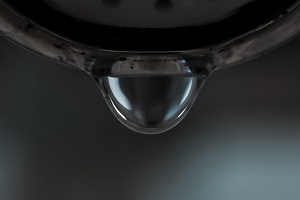
My well water looks clear and tastes clean. But how do I know for sure if it is safe for my family to drink?” – Mark L., Boscawen
The quality and cleanliness of drinking water should be a concern for everyone who uses well water. To answer Mark’s question, we turn this week to UNH Cooperative Extension Master Gardener Traci Bisson, to tell us what residents need to know to ensure their drinking water is safe.
UNH Cooperative Extension brings information and education into the communities of the Granite State to help make New Hampshire’s individuals, businesses, and communities more successful and its natural resources healthy and productive. For over 100 years, their specialists have been tailoring contemporary, practical education to regional needs, helping create a well-informed citizenry while strengthening key economic sectors.
Don't trust your senses.
The only way to know for sure if your water is safe is to have it tested. According to the New Hampshire Department of Environmental Services (NHDES), many pollutants found in drinking water from private wells have no taste, smell, or color. The most dangerous include coliform, E. coli, lead, and arsenic.
Other contaminants commonly found in New Hampshire’s groundwater include iron, manganese, sodium, chloride, nitrates, fluoride, copper, uranium, radium, radon and volatile organic compounds. A standard analysis of your drinking water will test for these pollutants. In addition, the test also analyzes pH balance and hardness.
A short description of the most common contaminants can be found at the NHDES website.
How often should I test?
Margaret Hagen, agriculture resources educator at UNH Cooperative Extension in Hillsborough County and the host of “Grow it Green” on WMUR, recommends that private well owners test their water every three to five years for pollutants commonly found in New Hampshire’s groundwater.
Bacteria and nitrates however, should be tested for every year according to NHDES. There are exceptions to these recommendations. For instance, anytime there has been recent construction on or around your well, or any repair or plumbing modification completed, NHDES recommends retesting.
Are you thinking of buying a new home? If the property has a well, be sure to have the water tested, before you purchase. These tests are routinely performed as part of the house inspection process if you are financing.
Three easy steps:
Contact an accredited lab in your area that provides well water quality testing services that meet NHDES standards. The lab will give you instructions on how to pick up and drop off a sample kit for testing. Testing results are usually available within 3-4 weeks. If you prefer, you can order a water quality test kit directly from NHDES. The test kits are usually free. The water analysis may run between $80 - $100+ depending on the lab you use.
Enter your well water test results at the NHDES website. You will receive an evaluation of your well water quality and, if necessary, water treatment options. If a test shows that your well water has contaminants in it, NHDES can help you navigate water treatment choices that work best for the level of contaminants in your water.
For more information, contact: NHDES Drinking Water & Groundwater Bureau at (603) 271-2513 or dwgbinfo@des.nh.gov
For additional information on how to test the quality of your drinking water, download Protect Your Family’s Health from NHDES.
UNH Cooperative Extension’s Education Center answers questions about gardening and more at answers@unh.edu or by calling 877-398-4769 Monday through Friday, 9 a.m to 2 p.m. The Master Gardeners are volunteers trained though UNH Cooperative Extension who share research-based information about home horticulture, pest management, and more.

















































